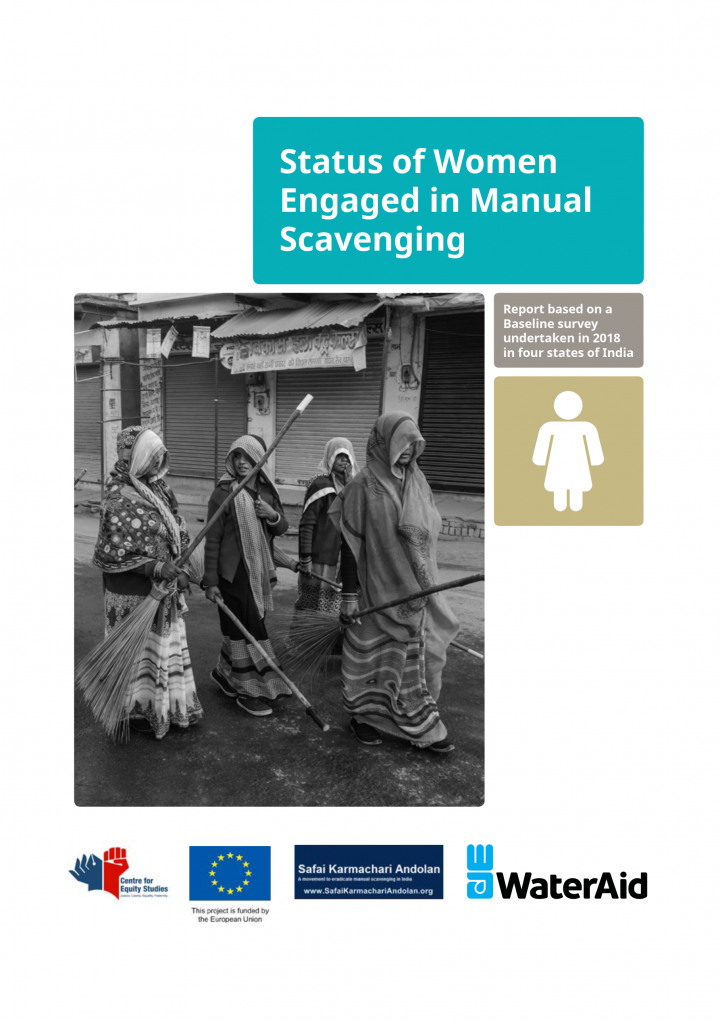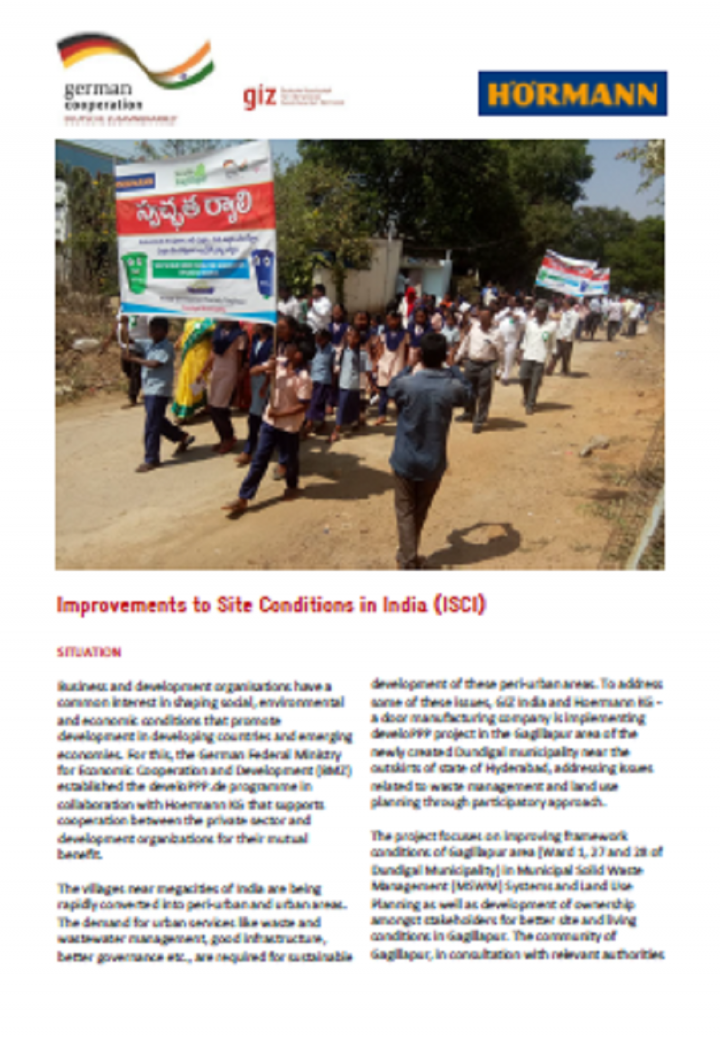Searching for information on Sanitation Workers?
The Sanitation Workers Knowledge + Learning Hub is the best source for all current news, trends, articles and updates on sanitation workers rights around the world.
Community engagement and accountability (CEA) is an approach to Red Cross and Red Crescent programming and operations. It is supported by a set of activities that help put communities at the centre of what we do, by integrating communication and participation throughout the programme cycle or operation.
CEA is the process of and commitment to providing timely, relevant and actionable life-saving …
There is now widespread recognition that participatory development-involvinig users and communities in all stages of the development process-is critical for achieving sustained benefits. By responding to felt needs, and by involving stakeholders intimately in all aspects of a program, participatory development creates "ownership," accountability, and a willingness on the part of users to manage …
The intent of this guidance note is to increase awareness among CARE’s WASH practitioners of gender issues, ensuring emergency WASH programs are viewed with a gender lens. The content is not original, rather an amalgamation of various guidance and best practice, distilled here to provide a more concise reference tool for CARE’s WASH staff to meet minimum WASH and gender equality standards.
Barrier Analysis is a rapid assessment tool used in community health and other community development projects to identify behavioral determinants associated with a particular behavior. These behavioral determinants are identified so that more effective behavior change communication messages, strategies and supporting activities (e.g., creating support groups) can be developed. It focuses on eight …
WSPs are a risk-based preventative approach to most effectively protect drinking-water safety and are recommended in the WHO Guidelines for Drinking-water Quality. WSPs are now being adopted worldwide, but they are not always fully understood by all stakeholders. Face-to-face training is therefore essential to ensure globally successful WSP implementation.
The training package consists of …
The baseline survey was conducted in the four states of Bihar, Madhya Pradesh, Uttar Pradesh and Jharkhand. This report has analysed the data generated for the following areas:
a. Manual scavenging (MS) and dry latrines
b. Prevalence of stigma, discrimination, untouchability, gender and caste-based discrimination and violence
c. Participation in community led initiatives for rights and …
A Positive Deviance/Hearth Nutrition Program (PD/Hearth) is a home- and neighborhood-based nutrition program for children who are at risk for protein-energy malnutrition in developing countries. The program uses the “positive deviance” approach to identify those behaviors practiced by the mothers or caretakers of well-nourished children from low-resource families and to transfer such positive …
The Region of the Americas Highlights includes analysis of implementation of national policies, sustainability, human rights and equity measures, monitoring, human resources, financing and external support.
Sixteen countries out of 35 in the WHO Region of the Americas, with a total population of 550 million, participated in the GLAAS 2013/2014 reporting cycle. Overall, access to improved …
The Inter-Agency Standing Committee (IASC) published the original Women, Girls, Boys and Men. Different Needs — Equal Opportunities: Gender Handbook in Humanitarian Action in 2006. The purpose of the handbook was to provide humanitarian actors with guidance on gender analysis, planning and actions to ensure that the needs, priorities and capacities of women, girls, men and boys are considered …
BabyWASH at World Vision is an initiative which aims to improve the integration of water, sanitation and hygiene (WASH) interventions with maternal, newborn and child health (MNCH), nutrition and early childhood development (ECD), to enable a more profound impact on child health outcomes in the first 1,000 days of life. The initiative was developed due to a recognised gap in the integration in …
Reflecting the pace of change, since 2016 CaLP has been reviewing, revising and updating the Glossary on
an annual basis. This process (see flowchart below) is coordinated by the CaLP Secretariat and undertaken
through the CaLP Technical Advisory Group (TAG). The TAG is a group of 25 technical experts in the field
of cash and voucher assistance, drawn from CaLP’s membership. Feedback on …
PHAST shares the same participatory learning principles as CLTS, which aim at gaining self-esteem, believing in people‟s ability to solve basic problems with their own resources. PHAST and CLTS also have in common the technical scope in their original conception, since both have been designed to focus on sanitation issues in rural communities. However, PHAST in Red Cross / Red Crescent has been …
The FOAM (Focus on Opportunity, Ability, and Motivation) is a framework designed to help in the development, monitoring, and evaluation of handwashing behavior change programs. FOAM was developed for use in resource-poor settings, but it can also be adapted for other socioeconomic environments. This working paper is intended for use by program managers implementing handwashing behavior change …
Health is a sustainability subject with diverse intersectoral linkages across several SDGs. The scope of SDG 3 – Ensure healthy lives and promote well-being for all at all ages – is broad and ambitious. As highlighted through these case studies, sustainability education and participatory, multi-stakeholder learning and action have significant impact in improving health, sanitation and …
One challenge facing WASH programs is that water and sanitation infrastructure are generally collective goods, while WASH behaviors involve individual responsibilities nested within collective norms. Social capital is theorized to facilitate collective action and enhance the diffusion of WASH-related behavioral interventions by enhancing social cohesion and collective action. We used a mixed …
Since 2000 a number of community-driven sanitation approaches have emerged that counter a historical trend to subsidise the provision of latrines to the poor. This study reports on a set of findings and conclusions concerning the effectiveness and sustainability of two such approaches operating in Zimbabwe, the community health club (CHC) approach and community-led total sanitation (CLTS). …
Bardibas Municipality is located in Mahottari District, Madhesh Province of Nepal. It has total 14 wards and covers the area of 315.57 square kilometres. It is surrounded by Kamalamai Municipality of Sindhuli District in North, Aurahi and Bhangaha Municipalities in south, Dhanusha District in the east and Sarlahi District in the west. According to national population and housing census 2021, …
Business and development organisations have a common interest in shaping social, environmental and economic conditions that promote development in developing countries and emerging economies. For this, the German Federal Ministry for Economic Cooperation and Development (BMZ) established the develoPPP.de programme in collaboration with Hoermann KG that supports cooperation between the private …
Ocean wastewater pollution is serious, pervasive, and overlooked. Ignoring ocean wastewater pollution has consequences which threaten local and national economies, public health, fisheries, and coastal security, and can even amplify the impacts of climate change. Efforts to improve ocean health have most recently focused on establishing marine protected areas, improving fisheries management, and …
The brochure summarizes the FSM project piloted in Dhenkanal, Odisha, and the journey the district undertook to become one of first districts to have 'safely managed' sanitation systems in India.
The Project is being implemented in the Dhenkanal district in the state of Odisha in consultation and partnership with the Panchayat Raj and Drinking Water Department and Housing and Urban Development …








































